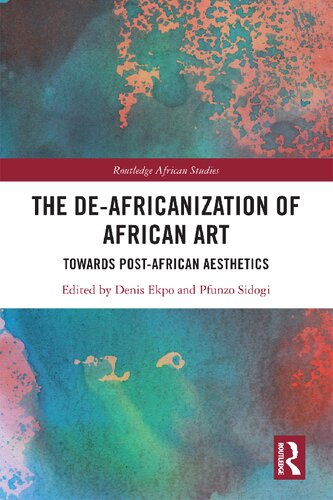

Most ebook files are in PDF format, so you can easily read them using various software such as Foxit Reader or directly on the Google Chrome browser.
Some ebook files are released by publishers in other formats such as .awz, .mobi, .epub, .fb2, etc. You may need to install specific software to read these formats on mobile/PC, such as Calibre.
Please read the tutorial at this link: https://ebookbell.com/faq
We offer FREE conversion to the popular formats you request; however, this may take some time. Therefore, right after payment, please email us, and we will try to provide the service as quickly as possible.
For some exceptional file formats or broken links (if any), please refrain from opening any disputes. Instead, email us first, and we will try to assist within a maximum of 6 hours.
EbookBell Team

4.0
26 reviewsThis book argues for a radical new approach to thinking about art and creativity in Africa, challenging outdated normative discourses about Africa’s creative heritage.
Africanism, which is driven by a traumatic response to colonialism in Africa, has an almost unshakable stranglehold on the content, stylistics, and meaning of art in Africa. Post-African aesthetics insists on the need to move beyond this counter-colonial self-consciousness and considerably change, re-work and enlarge the ground, principles and mission of artistic imagination and creativity in Africa. This book critiques and dismantles the tropes of Africanism and Afrocentrism, providing the criteria and methodology for a Post-African art theory or Post-African aesthetics. Grounded initially in essays by Denis Ekpo, the father of Post-Africanism, the book then explores a range of applications and interpretations of Post-African theory to the art forms and creative practices in Africa.
With particular reference to South Africa, this book will be of interest to researchers across the disciplines of Art, Literature, Media Studies, Cultural Anthropology, and African Studies.